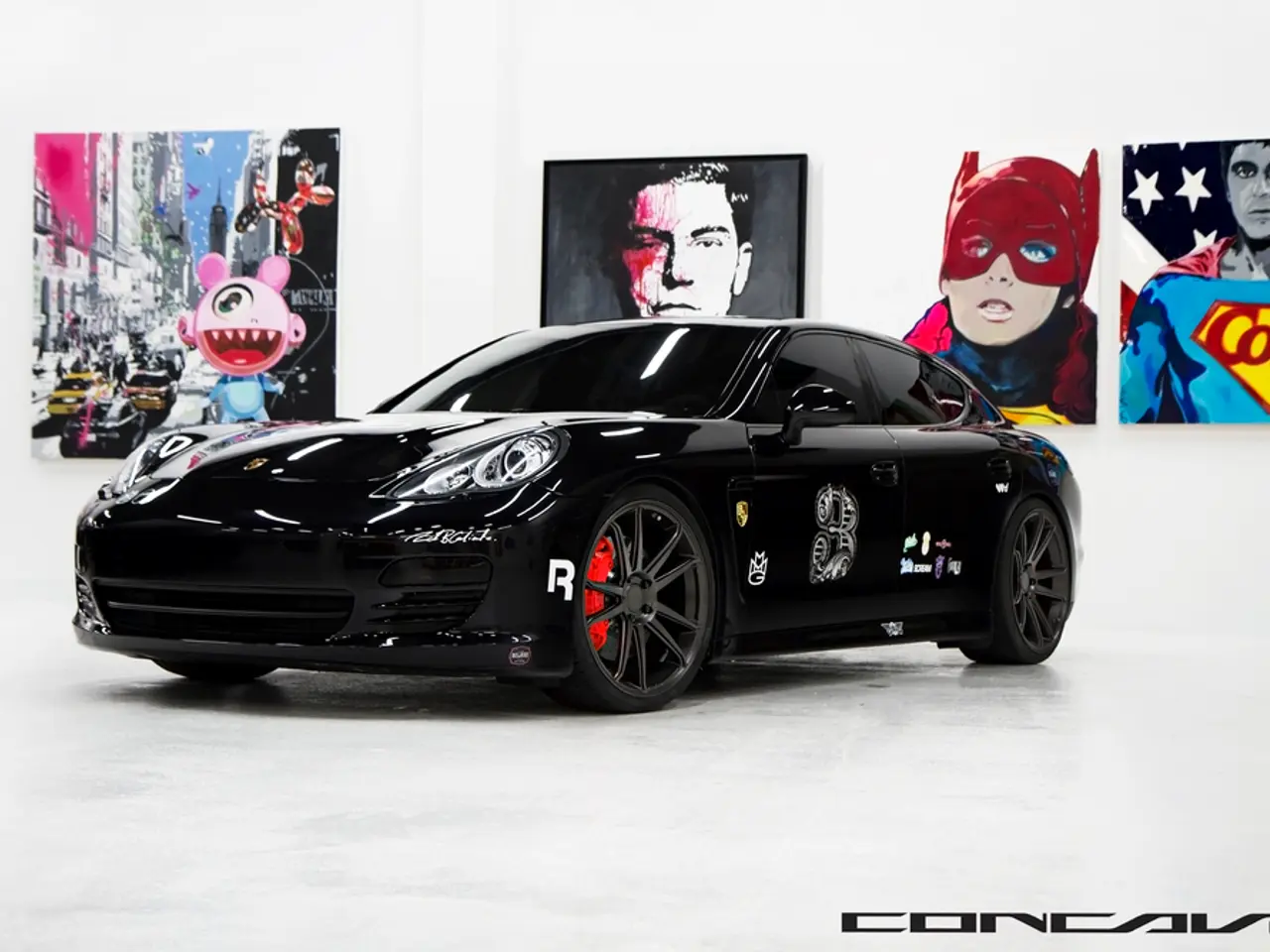Auto Industry Lobby Assessing Trump-driven Shifts in Policy (WardsAuto Podcast)
The next few months are expected to see significant changes in the auto industry, as discussions at the Alliance for Automotive Innovation's (AAI) Merge event suggest [1]. David Kiley, Senior Editor and Podcast Host at WardsAuto, spent a day at the AAI's Merge event, where key figures such as John Bozzella, the CEO of the AAI, and Michael Berube, the Department of Energy's Deputy Assistant Secretary for Sustainable Transportation & Fuels, were speakers [2][3].
Under the Trump Administration, changes to the auto industry policies have been a topic of interest. One of the most notable changes is the introduction of increased tariffs on imports, particularly affecting vehicles and parts made outside the U.S., including those from Mexico and Canada, under the United States-Mexico-Canada Agreement (USMCA) [4][5]. These tariffs have raised costs for automakers and dealerships, putting pressure on profit margins across the industry [1][2].
The higher tariffs mean increased costs for automakers sourcing vehicles or parts from Mexico and Canada, traditionally significant suppliers under NAFTA and now USMCA. This drives up prices, especially for lower-priced vehicles largely built outside the U.S. [2].
In addition to tariffs, the Trump Administration has begun dialing back federal electric vehicle (EV) incentives, ending tax credits and leasing loopholes on October 1, 2025. This policy change is expected to reduce EV sales momentum and curb automaker investments in new EV models [1][2].
The Administration has also loosened environmental and emissions regulations, rolling back fuel efficiency standards and emissions penalties, mainly to benefit domestic manufacturers, especially for larger, less fuel-efficient vehicles [1][4]. This regulatory easing is a partial offset to the tariff-related cost increases for U.S. automakers.
However, the cumulative tariff effects have forced automakers to cancel or delay certain EV developments and riskier model lines, disproportionately harming low-margin, innovative, or niche vehicles made largely in Mexico and Canada [2].
The tariff policy adjustments under Section 232 have been made to prevent tariff stacking on vehicles and parts, reducing additional tariff burdens retroactively from March 2025. However, overall baseline reciprocal tariff rates have been threatened to increase from 15% to 20% on imports, prolonging trade tensions [5].
In summary, automakers in Mexico and Canada are likely to face higher tariffs that increase export costs to the U.S. market, potentially reducing competitiveness and forcing product line cuts or delays. Meanwhile, U.S. domestic automakers may benefit from eased environmental rules but still absorb tariff costs. The overall impact is tighter profitability and uncertainty for automakers across the three countries under the USMCA framework with Trump Administration policies [1][2][5].
The proposed tariffs by the Trump Administration could potentially affect the USMCA agreement. The discussions at the AAI's Merge event included anticipation for changes from the Trump White House, indicating that the auto industry is closely watching these developments [1].
References:
[1] Kiley, D. (2021, September 29). Trump's Auto Tariffs Could Harm U.S. Auto Industry, Alliance for Automotive Innovation Says. Retrieved from https://www.wsj.com/articles/trumps-auto-tariffs-could-harm-u-s-auto-industry-alliance-for-automotive-innovation-says-11632736745
[2] Kiley, D. (2021, September 23). Trump's Auto Tariffs Would Hurt U.S. Automakers, Alliance for Automotive Innovation Says. Retrieved from https://www.autonews.com/regulation/trumps-auto-tariffs-would-hurt-u-s-automakers-alliance-automotive-innovation-says
[3] Alliance for Automotive Innovation. (n.d.). Merge 2021. Retrieved from https://www.automotiveinnovation.org/merge
[4] Kiley, D. (2021, September 23). Trump's Rollback of EV Tax Credits Could Hurt Auto Industry, Alliance for Automotive Innovation Says. Retrieved from https://www.autonews.com/regulation/trumps-rollback-ev-tax-credits-could-hurt-auto-industry-alliance-automotive-innovation-says
[5] Kiley, D. (2021, September 22). Trump Administration's Tariff Rollbacks Could Help Auto Industry, Alliance for Automotive Innovation Says. Retrieved from https://www.autonews.com/regulation/trump-administrations-tariff-rollbacks-could-help-auto-industry-alliance-automotive-innovation-says
The increase in tariffs on imports, predominantly affecting vehicles and parts sourced from Mexico and Canada, could have profound effects on the automotive industry's finance, potentially leading to higher costs for automakers and dealerships, impacting profit margins. Also, the Trump Administration's dialing back of federal electric vehicle incentives and loosening of environmental and emissions regulations might affect the transportation sector, influencing the development and sales of electric vehicles in the future.




